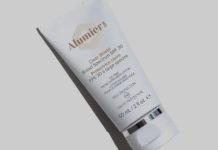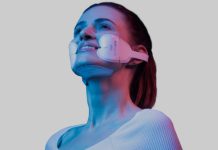Perhaps I’m telling on myself here, but ketamine isn’t hard to find if you’re looking. Whether you’re rigged up to an IV on an operating table or meeting up with a Cousin Greg look-alike at a warehouse party in the wee hours, it’s available. But let’s be clear: the regulated, medical-grade ketamine that’s been used as a sedative in operating rooms and surgical clinics for years is a far cry from the party drug you’re probably thinking of. K has come a long way, and according to anesthesiologists and mounting studies, it might be worth asking your doctor about if you’re considering cosmetic surgery.
“Ketamine is an old medication that was established in the fifties, but it’s had a resurgence recently,” says Dan B. Ellis M.D., assistant professor of anesthesia at Massachusetts General Hospital. That renaissance is partially owed to new studies showing the dissociative drug’s positive effects on mental health: The FDA recently approved its use in prescription nasal spray to treat severe depression, ketamine clinics that provide infusions and lozenge-style doses for some cases of treatment-resistant mental illness like depression and PTSD are popping up all over the U.S., and studies are now suggesting it can even lead to less opioid dependence in post-op patients (more on that later). Most commonly, it’s administered before or during certain surgeries to help patients’ minds disassociate from the body and its pain for a more tranquil experience, as part of your typical multi-sedative anesthesia cocktail. And in recent years, it’s shown to be particularly helpful both during and in recovery from cosmetic procedures.
One recent study shows that ketamine is highly effective in reducing agitation post-rhinoplasty, and Dr. Ellis used the humble nose job as an example of its beauty-adjacent benefits: “When we wake patients up after rhinoplasty with their nose in a cast, nobody likes that feeling,” he says, pointing out that patients may try to remove their bandages or accidentally knock equipment off-kilter as they ‘reanimate’ or wake up from sedation. “You have to find ways to calm them down — either verbally or chemically — and bring them into a state of awareness, and ketamine might be useful for that [in the right] dosage.” It can also potentially make breathing less strained during face-centralized surgery.
“With cosmetic surgery, we usually supplement oxygen for patients, and if you’re operating on someone’s nose or face, we can’t give them the usual kind of nasal cannula or a face mask to deliver oxygen,” explains BobbieJean Sweitzer, M.D., an anesthesiologist and systems director of preoperative medicine at Inova in Virginia. “Ketamine is unique amongst anesthetics in that it actually doesn’t depress ventilation to the same degree that others do. You can attain a much deeper state of anesthesia without the respiratory depression.”
Nearly 70 years out, anesthesiologists have perfected more nuanced dosages, but even an optimized ketamine cocktail isn’t universal.
But as with any drug, recreational or otherwise, taking it in excess can turn a therapeutic experience into a hellish one. While street ketamine is typically taken for a detached or euphoric high, an excessively large dose can drop its user into a K-hole, which is party-speak for a major out-of-body experience that can render the user immobile for an extended amount of time. Similar reactions in patients in the hours post-surgery were why ketamine fell out of favor in the medical community in the early years following its discovery: Without substantial trials on the drug, doctors were using it as a solitary anesthetic in heavy-handed amounts. Nearly 70 years out, anesthesiologists have perfected more nuanced dosages, but even an optimized ketamine cocktail isn’t universal. You may not be a candidate if you’re predisposed to hallucinations, dissociative episodes, or anxiety, says Dr. Ellis.
“One thing to keep in mind is that ketamine is a cousin to PCP, and it has the ability to cause similar impacts on people [like] hallucinations and strange psychological effects,” he explains. But as with all major surgeries, patients should discuss any pre-existing conditions with their doctor, which will help dictate if they should avoid ketamine altogether. “It may worsen certain psychiatric disorders such as schizophrenia,” explains James W. Murrough, M.D., director of the Depression and Anxiety Center for Discovery and Treatment at Mount Sinai. “Therefore, if someone has any of these conditions, they and their doctor should carefully weigh the risks and benefits of using ketamine for these procedures.”ADVERTISEMENT
For most of us, though, the risks associated with the opiates often prescribed for post-surgery pain management — even for a standard cosmetic procedure — are much higher. Up to 29 percent of patients who are prescribed opioids for chronic pain misuse them, and nearly 50,000 people in the U.S. died from opioid-involved overdoses in 2019 alone. But recent research has revealed yet another potential upside of using ketamine while sedated: It’s been shown to help curb opioid dependence. Because ketamine appears to target different receptors in the brain than opiates do, it changes the way the body perceives pain, even in the days following a procedure.
“As many things in medicine do, it’s had this weird evolution.”
“Ketamine administered during surgery can minimize the amount of opiates prescribed after surgery. It treats the pain, and it prevents that addiction cycle from starting,” says Dr. Ellis. “Helping the opioid crisis isn’t where the research started, but as many things in medicine do, it’s had this weird evolution. Opioid addiction has played out all over this country. We’re doing everything we can to treat people’s pain appropriately with medications that aren’t opiates, and ketamine is an elegant solution to that.”
Among the taboo-ish drugs becoming more normalized in the mission to optimize our medical care and mental health — think LSD and psilocybin — ketamine is arguably the most clinically practiced. And according to Dr. Sweitzer, who’s used ketamine as a sedative in her practice for over 20 years, the time spent studying the drug has led to a more informed medical community and in turn, better outcomes in surgery: “Though ketamine isn’t universally used by anesthesiologists, most of them and those on anesthesia care teams who have used it have embraced it and have been amazed by it.”




